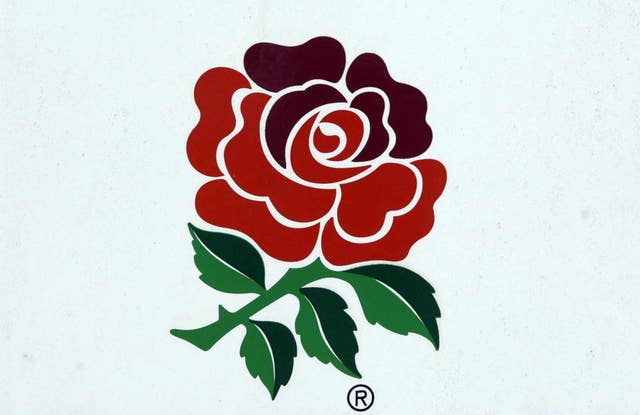Rugby union's first international match took place on March 27, 1871 in Edinburgh.
Scotland tackled England at Raeburn Place, and the PA news agency looks back on what was a momentous occasion for the sport.
The origins
A sporting publication entitled Bell's Weekly carried a challenge in its edition of December 8, 1870 that was an invitation from five Scottish clubs to any team "selected from the whole of England" to participate in a game played under rugby rules. It would be 20 players per team, and Blackheath Rugby Club in London – that had been formed in 1858 – accepted it with the aim of compiling a representative England team. Less than four months later, the first international rugby union match took place.
The venue
#OTD in 1871 the first international rugby union match took place. 🏉The match was played at Raeburn Place, Edinburgh in front of 4,000 spectators. Scotland won 1-0.Hop over to #SCRAN to search the rugby archives 👉 https://t.co/ealmqeLDeO pic.twitter.com/9mS3vcRc92
— Historic Environment Scotland (@HistEnvScot) March 27, 2018
Raeburn Place, which sits in the Edinburgh suburb of Stockbridge and is named after the Scottish painter Sir Henry Raeburn, hosted the game. It was a ground that had been acquired by members of Edinburgh Academicals in 1853, and four years later a match was staged between the Academicals and University of Edinburgh. It went on to become the Scotland national rugby team's home venue for 25 years, and more recently hosted the Women's Rugby World Cup final (1994) and staged Scotland fixtures in the Cricket World Cup (1999).
The teams
We've got the team at the ready!https://t.co/Rv8coSktBI
— SCRAN (@Scranlife) March 27, 2018
The Scottish side came from seven teams – Edinburgh Academicals, Glasgow Academicals, St Andrew's University, Merchistonians, Edinburgh University, West of Scotland and Royal HSFP – and was captained by Edinburgh Academicals player Francis Moncrieff. England were led by Blackheath's Frederick Stokes, with the visitors represented by a variety of clubs, including Clapham Rovers, Marlborough Nomads, Ravenscourt Park and Richmond. One of two umpires selected to officiate was Hely Hutchinson Almond, a Scottish physician, politician and headmaster.
Scotland: William Brown (Glasgow Academicals), Thomas Chalmers (Glasgow Academicals), Alfred Clunies-Ross (St Andrew's University), Thomas Marshall (Edinburgh Academicals), William Cross (Merchistonians), John Arthur (Glasgow Academicals), Angus Buchanan (Royal HSFP), Andrew Colville (Merchistonians), Daniel Drew (Glasgow Academicals), William Forsyth (Edinburgh University), James Finlay (Edinburgh Academicals), Robert Irvine (Edinburgh Academicals), William Lyall (Edinburgh Academicals), James Mein (Edinburgh Academicals), John MacFarlane (Edinburgh University), Francis Moncrieff (Edinburgh Academicals), Robert Munro (St Andrew's University), George Ritchie (Merchistonians), Alexander Robertson (West of Scotland), John Thomson (Glasgow Academicals).
England: Arthur Guillemand (West Kent), Richard Osborne (Manchester), Arthur Lyon (Liverpool), William MacLaren (Manchester), John Bentley (Gipsies FC), Joseph Green (West Kent), Reg Birkett (Clapham Rovers), Benjamin Burns (Blackheath), John Clayton (Liverpool), Charles Crompton (Blackheath), Alfred Davenport (Ravenscourt Park), John Dugdale (Ravenscourt Park), Arthur Gibson (Manchester), George Hamersley (Marlborough Nomads), John Luscombe (Gipsies FC), Charles Sherrard (Blackheath), Frederick Stokes (Blackheath), Frank Tobin (Liverpool), Dawson Turner (Richmond), Henry Turner (Manchester).
The match

The game was watched by more than 4,000 spectators, who witnessed two 50-minute halves of rugby. Angus Buchanan and William Cross scored tries for Scotland, with Clapham Rovers' Reg Birkett claiming England's touchdown. Crucially, though, only kicks dictated the scoring, and what was effectively a 1-0 victory was secured by Cross converting Buchanan's try. England had headed north in confident mood, but they could have no complaints about the result. It launched the series of games between Scotland and England that currently stands at 138 played, with England leading the series 76-43 and 19 matches drawn.
The legacy
Your Rugby World Cup 2019 champions, @Springboks!
1995 #WebbEllisCup2007 #WebbEllisCup 2019 #WebbEllisCup #RWC2019 #RWCFinal pic.twitter.com/MTGffZd5yR
— Rugby World Cup (@rugbyworldcup) November 2, 2019
Almost 150 years after the first international match, governing body World Rugby has more than 100 members unions overseeing a sport played in every part of the globe. The men's and women's World Cups, Six Nations, Rugby Championship and world sevens circuit are all established competitions, while British and Irish Lions tours to Australia, New Zealand and South Africa attract thousands of travelling fans. International rugby union is a box-office sport watched by millions, but one that can be traced all the way back to a small corner of Scotland's capital city.







